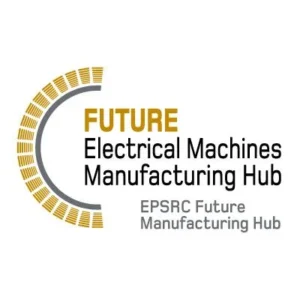Projects
Active projects

Robotic Triage For Value Retention In Circular Economy (RoboTriage)
Value: £1.8M (FEC) including £1.5M from the EPSRC
Duration: 2024-2027
Current Circular Economy practices often underutilise the potential of end-of-life products, with many being inefficiently recycled. This research addresses the critical need for scalable methods to separate heterogeneous used products for optimal valorisation (reuse, repair, remanufacturing, repurposing). Existing evaluation relies on subjective human judgment, leading to inefficiencies.
This research introduces “circularity triage,” a concept inspired by healthcare triage, involving the rapid, systematic assessment of products to determine their highest-value CE pathway. We aim to develop robotic systems capable of performing this triage by capturing product health data, enabling swift condition evaluation, segregation of similar items, and recommendations for optimal CE options.
The project’s objectives include creating robotic triage systems, developing intelligent planning for these systems, identifying correlations between product history and condition via large-scale robotic analysis, exploring value opportunities and circular business models based on these insights, and demonstrating industrial uptake through case studies.
This research promises significant academic impact across ICT, AI, and data science, with broader economic, societal, and environmental benefits. RoboTriage technologies offer the potential to scale CE practices, enhance productivity, and drastically reduce primary material use and energy consumption, exemplified by our industrial partnerships and international collaborations with the UN.
Details: UKRI

Robotic skill transfer and augmentation for contact-rich tasks in manufacturing (STAMAN)
Value: £1.3M (FEC) including £1M from the EPSRC
Duration: 2024-2027
STAMAN’s vision is to create AI-based mechanisms to allow robots to share and recreate obtained digital skills (e.g. motion and force/torque control strategies) to allow easy automation scale-up for contact-rich tasks. This includes considering two research questions:
1) For skill transfer – how can a contact-rich skill be quickly transferred to a different robot (e.g. transferring a bolt-nut separation skill from a high-precision robot to a low-precision robot)?
2) For skill augmentation – how can existing contact-rich skills be used to create new contact-rich skills (e.g. augmentation of rigid-material skills to deal with soft materials)?
The project will develop a portfolio of research into the science of digital skills for contact-rich tasks, focusing on common manufacturing tasks such as bolt-nut assembly/disassembly, peg-hole insertion/separation, and shaft-ring assembly/disassembly. The ability to transfer and augment digital skills for contact-rich tasks will allow automation systems to be implemented on a larger scale, with minimal manual setting and fine-tuning required. STAMAN aims to create transferrable and augmentable digital skills that will underpin the development of mass machine skills for future manufacturing, similar to how industrial robots have contributed to modern mass production.
The proposed research encourages more use of robots in assembly (e.g. automotive, aerospace, electronics, etc.) and disassembly (e.g. repairs, remanufacturing and recycling), and thus directly contributes to the UK’s Made Smarter initiative and the circular economy goals.
Details: UKRI

EPSRC Manufacturing Research Hub in Robotics, Automation & Smart Machine Enabled Sustainable Circular Manufacturing & Materials (RESCu-M)
Value: £15M (FEC)
Duration: 2024-2031
The UK government and UN are pushing for a Circular Economy to tackle climate change and maintain living standards, as global material consumption and waste are set to skyrocket. Traditional manufacturing’s linear “make-use-dispose” model is unsustainable, especially for critical materials vital for technologies like batteries and medical devices. Extending the lifespan of these materials through reuse, repair, remanufacturing, and recycling (Re-X) is crucial but currently inefficient and labour-intensive, hindering widespread adoption.
This hub aims to revolutionise circular manufacturing by integrating AI and intelligent automation to create a new ecosystem for high-value product resource use, positioning the UK as a global leader. Its grand challenges are to radically improve critical material sustainability (>75% component reuse, >20% material use decrease, >50% component reclaim increase) and to make Re-X manufacturing productivity equal to or better than traditional methods (>10 times improvement).
The hub will foster interdisciplinary research in smart Re-X processes, material state tracking, circular design, life validation, and new business models. Focusing on energy, medical devices, electric drives, and large structures, the hub’s Robotics and AI solutions will significantly reduce environmental impact, targeting 80% of high-value product impact and aiming to save over 8 million tonnes of CO2 annually.
Details: UKRI
Past projects

Electric Motor Disassembly – A FEMM Hub Feasibility Study
Value: £75k from EPSRC FEMM hub and £75k from the University of Birmingham
Duration: 05/2024-02/2025

Self-learning robotics for industrial contact-rich tasks (ATARI): enabling smart learning in automated disassembly
Value: £300k from EPSRC and £100k from the University of Birmingham
Duration: 10/2021-09/2023

Affordable and modular robotic disassembly systems (EPSRC IAA )
Value: EPSRC IAA Follow on rate
Duration: 4/2023-11/2023
and medical equipment, involve significant health and safety risks in disassembly (e.g. leakage and explosion), making disassembly expensive and difficult to scale up.
In this project, we aim to significantly reduce the cost of robotic technologies by improving the design of the disassembly robot system to create a general-use low-cost robotic disassembly robot station (e.g. a single robot cell) that can be used for *** and *** – the two major disassembly operations to disassemble common consumer products.
solutions. Being standardised means the proposed robotic disassembly product can be mass-duplicated and mass-produced which will pave the way for scale-up.

Hierarchical use of battery : Intelligent evaluation and collaborative robot disassembly
Value: £*** from JITRI
Duration: 10/2019-10/2022


AMTECAA (Advanced Manufacturing Technologies to Create, Activate & Automate) programme
Value: £10m funded by the European Structural Investment Funds (ESIF)
Duration: 2019-2023
AMTECAA supports SME’s in Birmingham and Solihull. AMTECAA covers six high-impact interrelated technology areas, i.e. additive manufacturing, advanced machining, surface engineering, laser processing, and industrial automation while digital manufacturing (Industry 4.0) is an overreaching enabler for developing new products and processes.
If you’re looking to explore how automation technologies can help you be more productive or provide a competitive edge then please contact us.

Automatic disassembly replanning for autonomous remanufacturing
Value: £12k from the Royal Society and £12k from NSFC
Duration: 03/2019-03/2022
and adapt frequently. Current industrial robotic techniques, most of which designed for repetitive and structured motions in assembly, do not have the required flexibility for disassembly. The project will facilitate autonomous multi-agent model and optimal replanning to deal with unforeseen changes in
robotic disassembly processes. We expect to produce scientific results relevant to researchers in robotics, modelling & simulation, remanufacturing and recycling. The resultant techniques will promote the flexibility and robustness of robotic disassembly systems, and thus encourage a wider adoption of remanufacturing.
